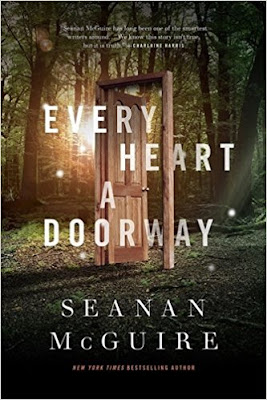Week 14 Prompt: GLBTQ and African American Fiction
My library is in a very conservative community, so I would recommend that we keep our GLBTQ and African American genre books integrated into the whole of the fiction collection. Currently, the only adult genres that are separate in my library are Mysteries, Westerns, Romance, and Graphic Novels. These are sections that have grown (Graphic Novels) or dwindled (Westerns) over the years, based on the community's interest. The interest in African American literature has grown, but the only reason I'm able to say this is that I've seen more holds placed on items in recent years than when I started. I don't see these particular authors browsed as much, though, so that is one reason I wouldn't separate them out. There are prolific authors whose books we purchase for the collection, and they tend to remain the popular choice (Terry McMillan, Eric Jerome Dickey). Other authors (aside from the classics) we don't tend to have as they haven't been in high demand in our community. If someone is looking for another title in the African American genre, they might be better served to simply ask and we can direct them toward more authors or place holds on other materials that might interest them. My library is in a primarily white community, but we are seeing some diversity beginning as we experience some of the suburbs of Indianapolis reaching further into Hancock County. As for another reason for integration, I want to offer this quote from Thomas's article: "A separate section for gay and lesbian fiction might pose problems, making some readers feel exposed when browsing and others ghettoized" (Thomas, p. 1). Especially in a small, conservative community, it can be difficult to have privacy and be assured that there are no judgments about your choice in material. We've seen this issue firsthand as we combined our reference and circulation desks in my library, and our reference librarians have noticed an interesting change: Questions regarding sensitive topics are no longer asked at our desk. As we have our check out stations, circulation questions, and any reference questions, we are a busy area for the library. There is no privacy at our desk, and so any sensitive topics (i.e. "How do I come out? How do I know I'm gay?") don't come to our desks anymore, when they did come to the reference desk when we were separate.
A third reason to keep these items integrated comes from the article by Munshi: "But, he continues, the books are often “the biggest and most compelling reason for a lot of people to turn to reading who otherwise wouldn’t. Urban lit really did open a new pathway into literature for an under-represented group of people” — namely, young black people". The serendipity of finding new authors after you've been lured into the stacks by an author you knew you'd enjoy is something you can't do if you're just relegated to an area that's just one genre and nothing else. Who knows what someone might find if they just... browse?
__
A third reason to keep these items integrated comes from the article by Munshi: "But, he continues, the books are often “the biggest and most compelling reason for a lot of people to turn to reading who otherwise wouldn’t. Urban lit really did open a new pathway into literature for an under-represented group of people” — namely, young black people". The serendipity of finding new authors after you've been lured into the stacks by an author you knew you'd enjoy is something you can't do if you're just relegated to an area that's just one genre and nothing else. Who knows what someone might find if they just... browse?
__
- Munshi, Neil. (2015). Urban fiction: words on the street. Financial Times. Retrieved from https://www.ft.com/content/08785ece-86ee-11e5-9f8c-a8d619fa707c
- Thomas, D. (2007). A Place On the Shelf. Library Journal (1976), 132(8), 40-3. Retrieved from Library Lit & Inf Full Text database.



Hi Catherine! I agree, we should not be separating LGBTQ books for the simple reason it might prevent a patron from selecting one of those books if they feel they are being judged by being in a certain section of the library. I also don't like the idea of the library giving into bigots like Kurt Korver from the Orange Library article who want to stress that members of the LGBTQ community are different than the rest of society and books dealing with those issues should not be mainstream.
ReplyDeleteExcellent, well articulated and argued post. You bring up many great points that strengthen your response. Full points!
ReplyDelete